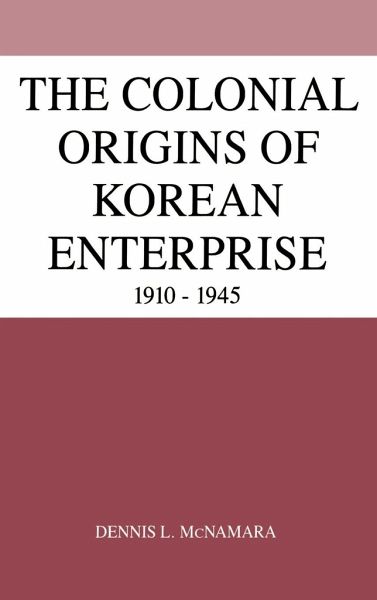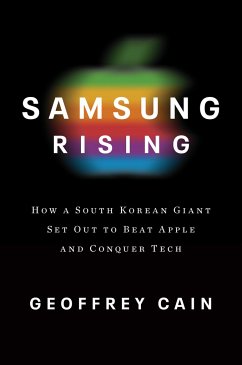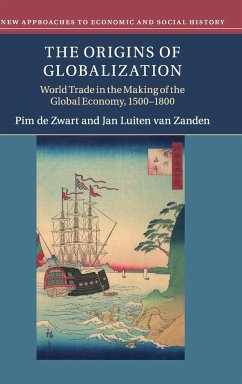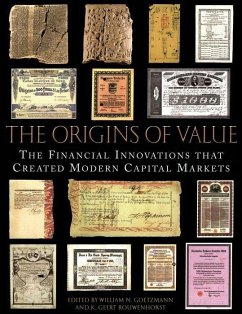
The Colonial Origins of Korean Enterprise
1910 1945

PAYBACK Punkte
59 °P sammeln!
South Korean conglomerates, or 'chaebol,' such as Hyundai and Samsung, play a far more important role in the Korean economy than do comparable large firms in the U.S. amd Japanese economies. Despite the importance of the chaebol to the rapid postwar development of the Korean economy, little has been written about their origins during the Japanese occupation. Through case studies of local ownership in major financial, commercial, and industrial ventures, this book provides a detailed picture of indigenous capitalism during Japanese government sources, Korean biographies and diaries, interviews,...
South Korean conglomerates, or 'chaebol,' such as Hyundai and Samsung, play a far more important role in the Korean economy than do comparable large firms in the U.S. amd Japanese economies. Despite the importance of the chaebol to the rapid postwar development of the Korean economy, little has been written about their origins during the Japanese occupation. Through case studies of local ownership in major financial, commercial, and industrial ventures, this book provides a detailed picture of indigenous capitalism during Japanese government sources, Korean biographies and diaries, interviews, and U.S. intelligence material, the author gives a compelling account of key personalities in the Korean business elite and of the personal dilemmas of balancing nationalism against success under dependent, colonial conditions. The author concludes that dependent rather than comprador capitalism characterized leading Korean businesses through 1945. Patterns of concentration within family enterprises, close ties with the colonial state, and mutual support among a Korean inner circle of business leaders constitute a legacy of the colonial period important to the subsequent development of Korean conglomerates.
Table of contents:
Preface; Abbreviations; 1. Origins; 2. Benign capitalism; 3. Colonial State; 4. Japanese investment; 5. The mins and finance; 6. Pak and commerce; 7. Kim and industry; 8. Legacies; Notes; Appendices; Bibliography; Index.
Table of contents:
Preface; Abbreviations; 1. Origins; 2. Benign capitalism; 3. Colonial State; 4. Japanese investment; 5. The mins and finance; 6. Pak and commerce; 7. Kim and industry; 8. Legacies; Notes; Appendices; Bibliography; Index.














